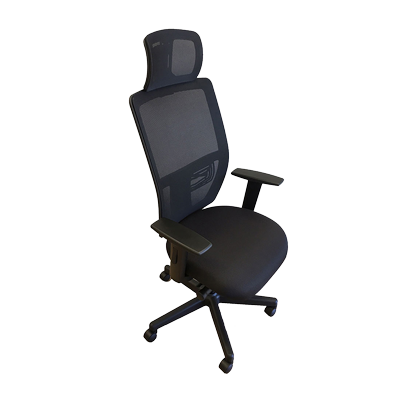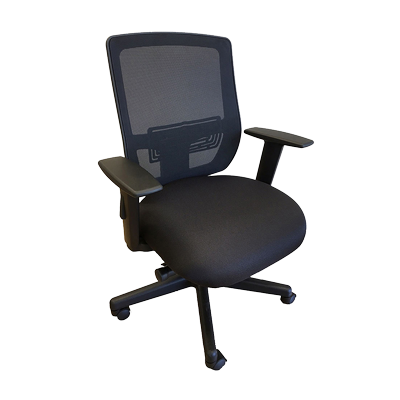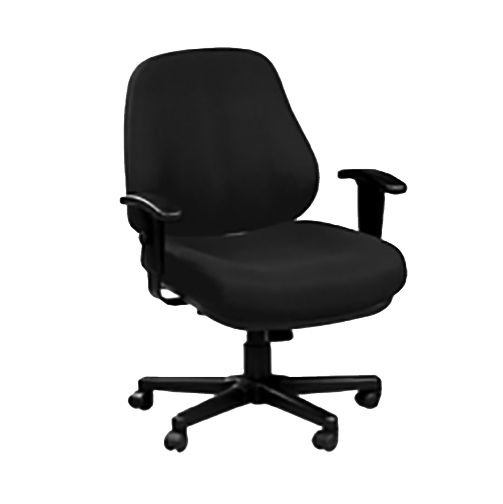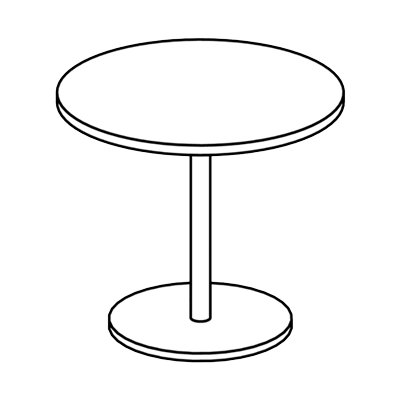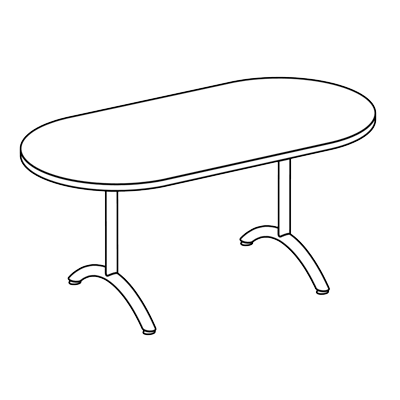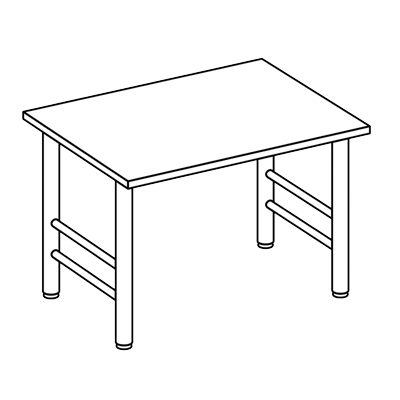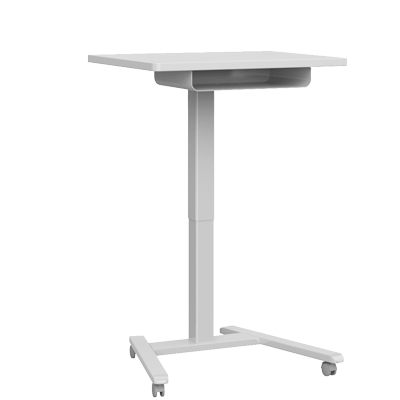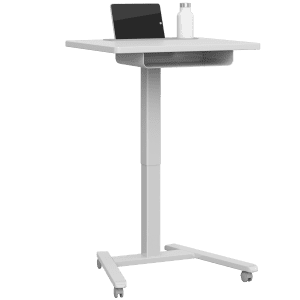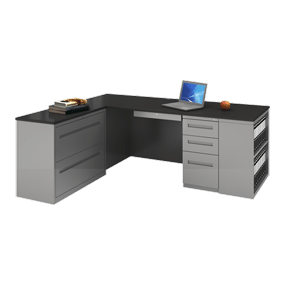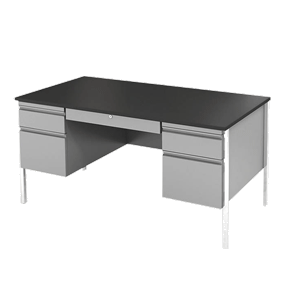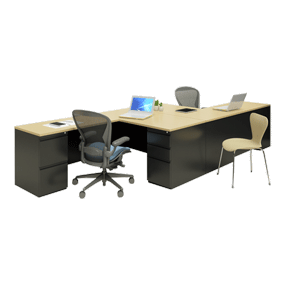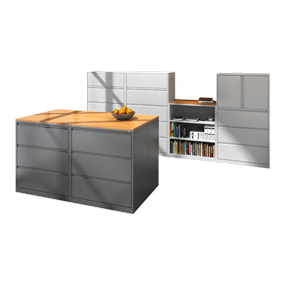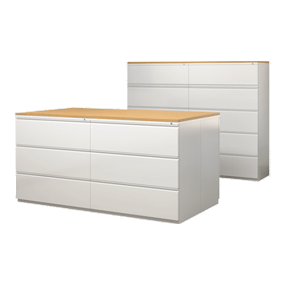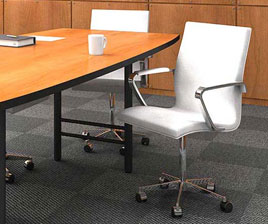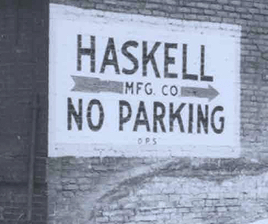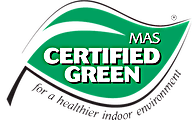Sustainability
At every step in the manufacturing process, Haskell has implemented efficient, state-of-the art practices to eliminate waste and pollutants and conserve natural resources.
Steel
Reduces waste through recycling
The primary material in Haskell products is steel. Not only is the lifecycle of steel furniture two or three times that of wood, but steel is also the most recycled post-consumer material in North America. Compared with virgin ore, recycled steel requires 74% of the energy and generates 86% less air pollution and 76% less water pollution. Plus, it performs just as well, so the steel recycled from a thirty-year-old Haskell file can be reprocessed into a new Haskell file. To further reduce waste, Haskell recycles 100% of all off-fall, slugs and scrap.
Powder Coating
Improves efficiency and material safety
Today, Haskell uses an oven-cured powder coating for its products. Overspray recovery units can reuse 95-99% of the powder, compared with 40-70% material reutilization rates for the liquid paint systems used in the past. Powder coatings extend the life of the product — they’re harder, more scratch resistant, less likely to peel if dented, and more chemical and corrosion resistant than in the pastâ€â€while completely eliminating VOCs from the process. Additionally, powder coatings do not interfere with the recyclability of the steel substrate and are in fact classified as a “non-hazardous” waste when disposed.
Laminate
Uses recovered and renewable materials
The tops and panels Haskell produces with thermolaminates and high-pressure laminates eliminate the need for solvent-based wood finishing systems and extend the products’ duty-cycles. Produced from 40% recovered materials, these laminate have the same basic, renewable contents as kraft paper. Unlike dimensional lumber that utilizes only 63% of a tree, the engineered substrates that serve as the base for the laminates convert about 95% of a tree. Haskell has also introduced a rapidly renewable wheat straw-based substrate to the market that is formaldehyde free and that qualifies for various LEED categories.
Operation
Conserves resources with smart practices
As dedicated to the conservation of natural resources as to the elimination of waste and pollutants, Haskell has replaced forklifts with electric scissor lifts and gravity-fed roller tables and begun recycling the cooling water used for spot-welding. Common sense changes like these characterize Haskell’s move towards sustainable manufacturing, a critical component of the company’s goal for corporate responsibility.

